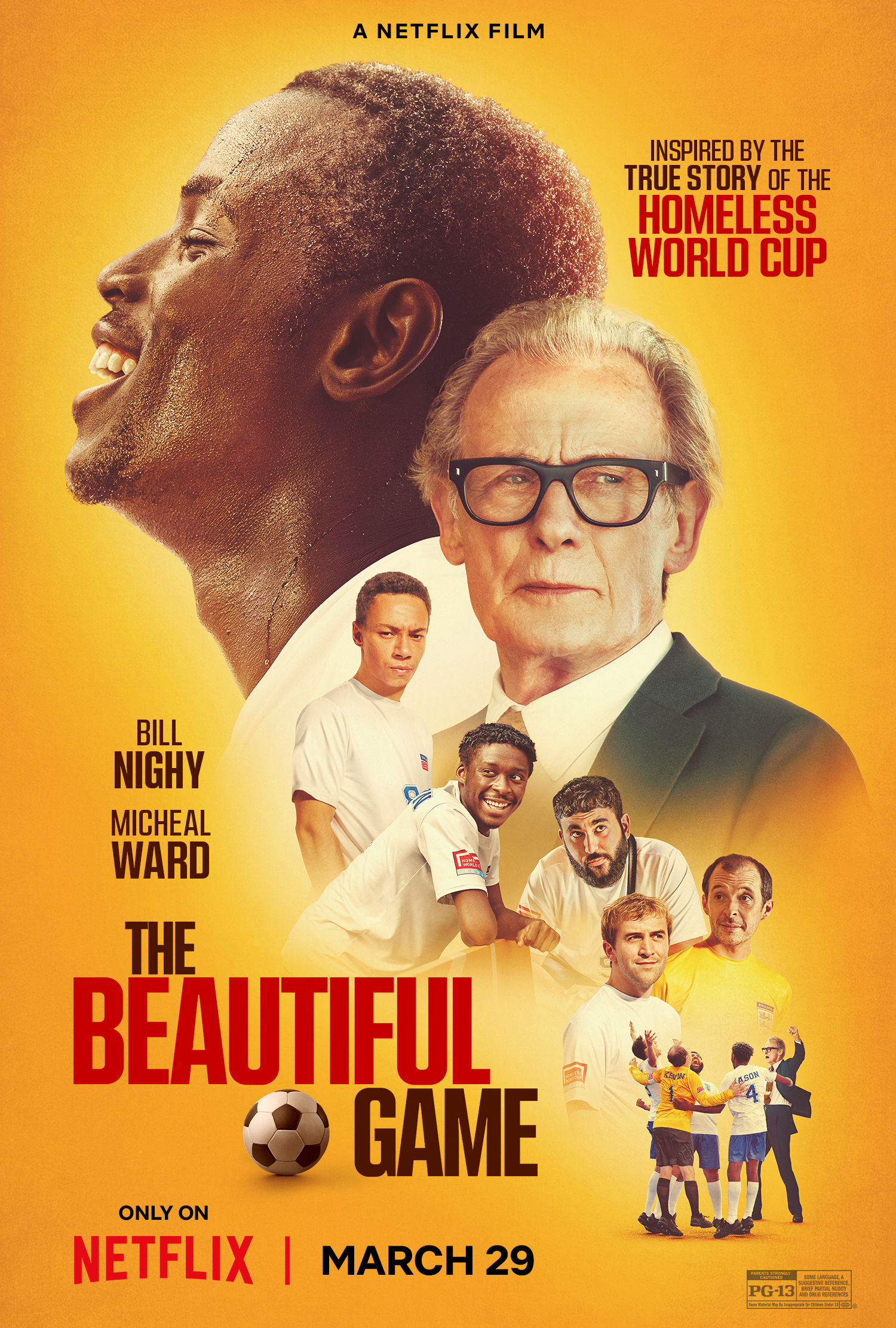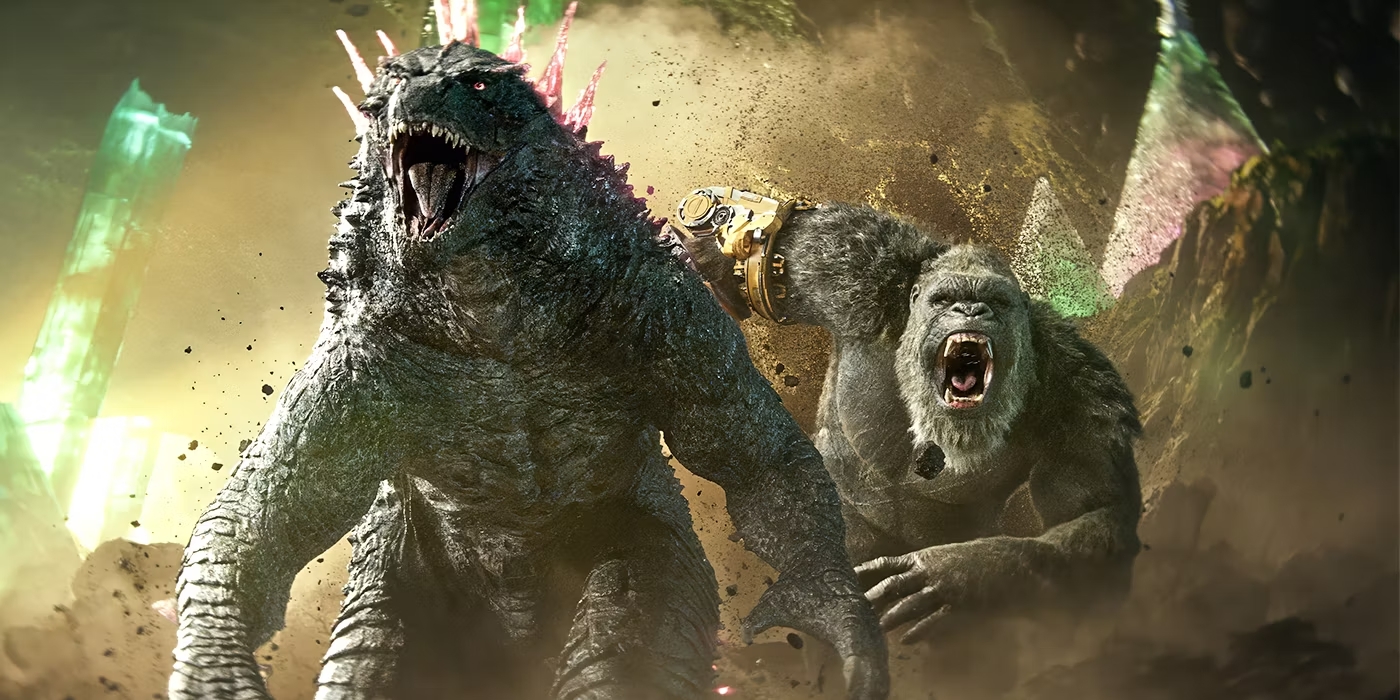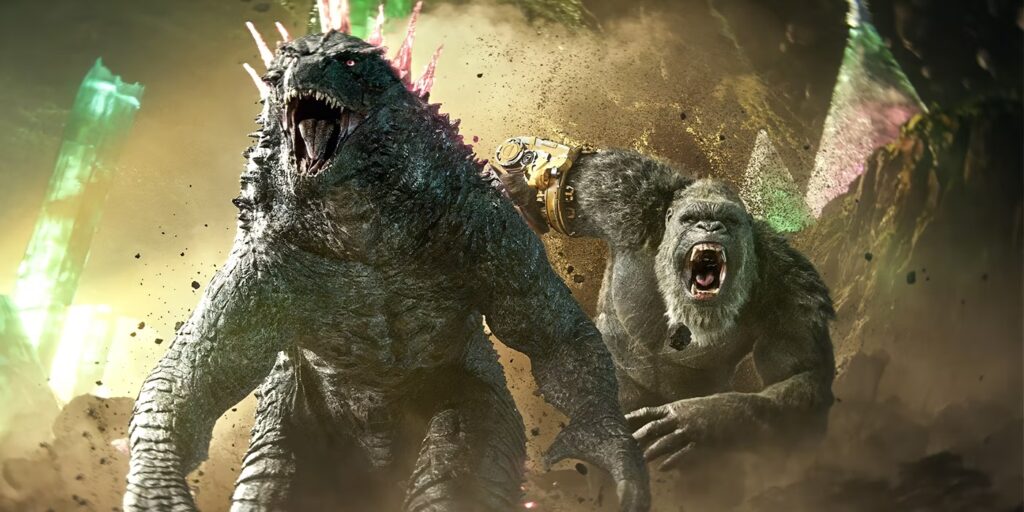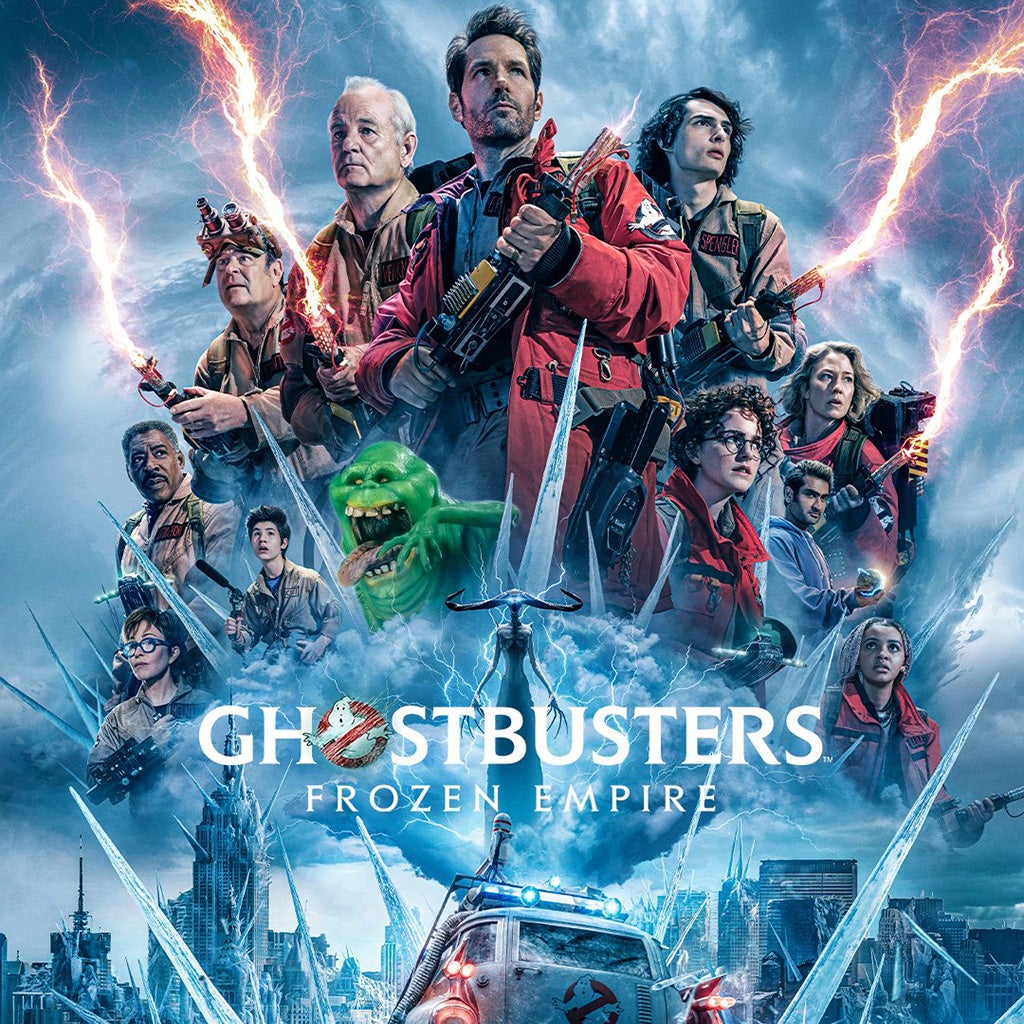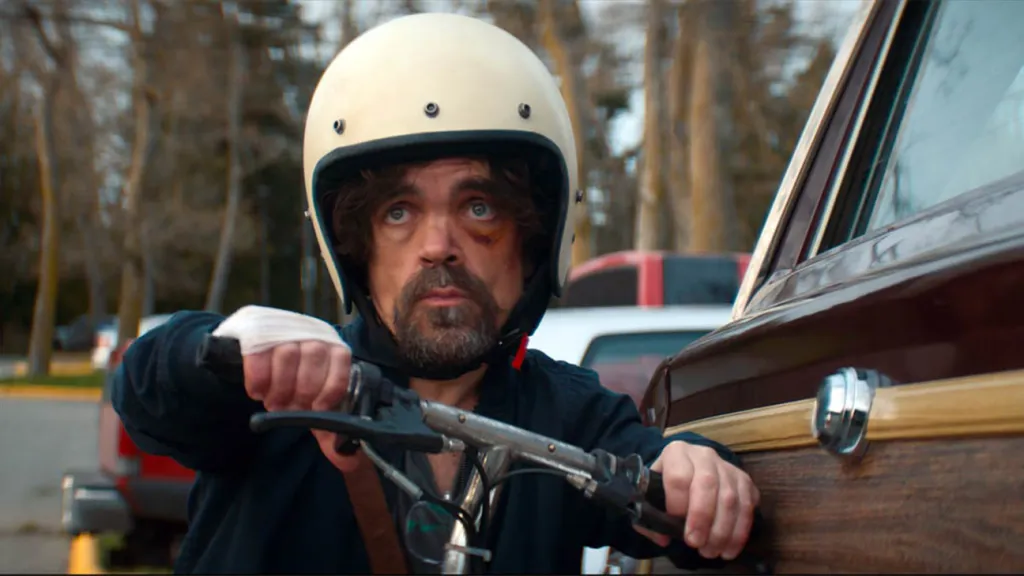The Beautiful Game
Posted on March 28, 2024 at 12:56 pm
B +| Lowest Recommended Age: | Middle School |
| MPAA Rating: | Rated PG-13 for some language, a suggestive reference, brief partial nudity and drug references |
| Profanity: | Some strong language |
| Alcohol/ Drugs: | References to drug abuse, alcohol |
| Violence/ Scariness: | Reference to tragic violence |
| Diversity Issues: | Class issues |
“We sat up late into the night talking about how we could change the world.” That was the origin of the Homeless World Cup. Mel Young and Harald Schmied attended an international meeting of editors, founders, and directors of street newspapers, staffed by people who were unhoused. They wanted to create an opportunity for other unhoused people to have the same opportunity to attend an international event devoted to showing their best. What could unite the world more than a Homeless World Cup of “the beautiful game” of football, the “universal language,” except, of course, when the US insists on calling it soccer.
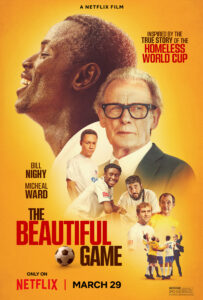
So this is a based-on-a-true-story underdog sports team story, with touching lessons about teamwork and sportsmanship. It has extra resonance because it shows us unhoused people are individuals, and without being preachy, the film reminds us that some people in that category are damaged, have mental illness or addiction issues. Some made bad choices and some just had very bad luck. Some have just been away from regular human interaction for so long they have forgotten the basics. But with a goal and team, they have purpose. “The miracle is respect,” one of the game’s organizers says.
This film has a ton of heart, lively sports action, beautiful scenery, and the true MVP every time we see him, Bill Nighy as Mal, the coach of the English team.
Mal sees Vinny (Micheal Ward, a standout in “Empire of Light”) playing with a soccer ball in a park and offers him a chance to go to the Homeless World Cup in Rome as a part of the England team. Vinny insists that he is not homeless and is insulted for being thought to be. But the chance to play, to have something to be proud of to share with his young daughter, is too much to resist, and he finds himself on a plane with Mal and the rest of the team. The other players include Nathan (Callum Scott Howells), Aldar (Robin Nazari), and Cal (Kit Young). As we might expect, we learn something about the backstories of the team and the players learn something about teams. In this case, since the rules of the Homeless World Cup allow members of one country’s team to substitute on another, the team is soccer in the largest sense and the entire unhoused community.
It is touching to see the team checking into the modest hotel and seeing it as luxurious. “Is it okay to use the shower?” one asks, almost unable to believe. The fierce commitment of the players is touching, too, but not as touching as one team’s reminding their coach that for them, winning means being a part of something and seeing the beauty of The Eternal City. The small audience in the bleachers is almost superfluous. The players are the fans, bringing as much enthusiasm as a cheering crowd filling an arena.
The idea of “winning,” like the idea of “team” is constantly enlarged. The beats of the story are specific and meaningful. The members of the team may not have a place to live but the team is their home. Don’t let Neflix cut off the credits, as the scenes of the real Homeless World Cup participants are wonderful.
“A dash of panache, please.” “True champions show their worth in defeat” “Everyone has a reason for being here.” the name of that miracle is respect Not homeless England is their home. priests in cassocks playing with s soccer ball, scenery
Parents should know that this film includes some strong language, brief non-sexual rear nudity, and references to drug addiction, gambling addiction, and child neglect.
Family discussion: What made Vinny change his mind about the team? About acknowledging that he was homeless? Why does the World Cup mean so much to the players?
If you like this, try: “Greenfingers” and the documentary, “Kicking It.”

